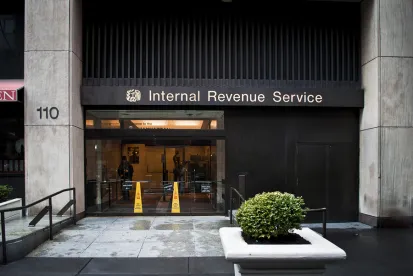The IRS released Revenue Procedure 2021-30, a new iteration of the Employee Plans Compliance Resolution System (“EPCRS”), on Friday, July 16. EPCRS permits sponsors of eligible tax-qualified retirement plans and 403(b) plans to voluntarily self-correct certain operational errors either through the self-correction program (“SCP”), or with IRS approval through the voluntary compliance program (“VCP”). This Alert discusses a few important changes made to the EPCRS program by Revenue Procedure 2021-30:
-
Effective July 16, 2021, the overpayment correction procedures are expanded to add two new correction methods for defined benefit pension plans. These new correction methods reduce the need for plan sponsors to seek recoupment of overpayments made to plan participants and beneficiaries:
-
Funding Exception Correction Method – Under this new method, plan sponsors are not required to recoup an overpayment if the plan’s AFTAP on the date of correction is at least 100% (additional rules apply for multiemployer plans). No further corrective payments from any party are required and no further benefit payment reductions are permitted.
-
Contribution Credit Correction Method – Under this new method, the amount of the overpayment that is required to be repaid is reduced (but not below zero), by (a) the cumulative prior increase in the plan’s minimum funding requirements attributable to the overpayments and (b) certain additional contributions in excess of minimum funding requirements paid to the plan after the first of the overpayments was made. This reduction is referred to as a “contribution credit.” If the amount of the overpayment is reduced to zero after the contribution credit is applied, no further corrective payments from any party are required and no further reductions of future benefit payments are required.
-
In both cases, future benefit payments to the Participant must be reduced to the correct benefit payment amount.
-
Effective July 16, 2021, the procedure for correcting an operational failure by plan amendment has been revised to remove the requirement that the plan amendment apply to all employees eligible to participate in the plan. The plan amendment to increase the specific benefit, right, or feature may now be limited to the participants affected by the failure.
-
Effective January 1, 2022, the anonymous submission procedure under VCP is eliminated and is replaced with an anonymous, no-fee, VCP pre-submission conference procedure. Under this new procedure, plans sponsors will be permitted to make an anonymous written request to the IRS to request a pre-submission conference to discuss a VCP eligible plan failure at no cost to the plan sponsor. However, if a VCP is filed following the pre-submission conference, it cannot be anonymous.
-
Effective July 16, 2021, the time period for plan sponsors to self-correct most “significant” compliance failures through SCP is increased from two (2) years to three (3) years.
-
The safe harbor allowing a lower (or no) contribution to be made by plan sponsors correcting missed elective deferrals for eligible employees subject to an automatic contribution feature expired on December 31, 2020, but is now revived until December 31, 2023 (the safe harbor will not be available for failures that occur after December 31, 2023).
-
Effective July 16, 2021, the threshold for de minimis failures that are not required to be corrected under most EPCRS correction methods is increased from $100 to $250.
-
Beginning January 1, 2022, Audit CAP sanctions are required to be paid through the Pay.gov website (instead of by check to the IRS).








 />i
/>i
